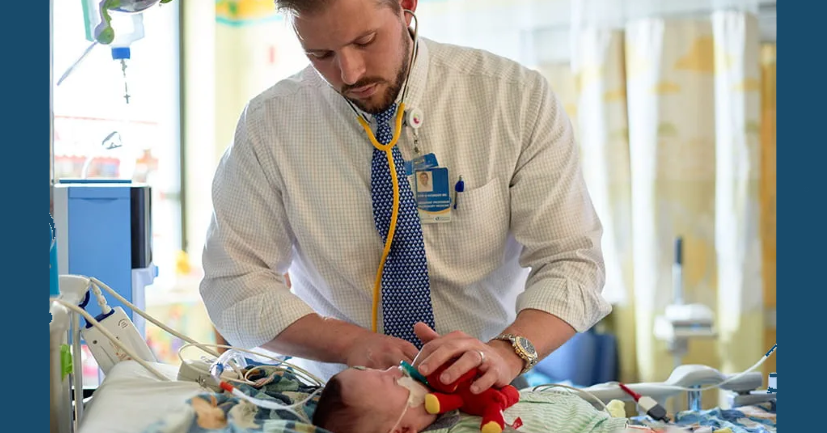Uma Kotagal: A Great Living Cincinnatian, A Global Leader in Hospital Quality Improvement
Post Date: December 3, 2019 | Publish Date:

Uma Kotagal, MBBS, MSc, executive leader, population and community health and senior fellow at Cincinnati Children’s has been named a Great Living Cincinnatian by the Cincinnati USA Regional Chamber.
She will be honored at the chamber’s annual dinner on Feb. 27, 2020, at the Duke Energy Center.
Kotagal stands among the most transformative figures in the 136-year history of Cincinnati Children’s (founded in 1883). She has served as a faculty member for 42 years, during which she authored or co-authored more than 120 research publications on topics including neonatal intensive care, the importance of human milk to infant health, and system-level healthcare quality improvement.
From Bombay to Cincinnati
Kotagal was born in Bombay, India, where she received her undergraduate and her MBBS from the University of Bombay. After internships at the University of Bombay and Detroit General Hospital, she completed her pediatric residency and a fellowship in neonatology at Children’s Hospital of Michigan.
Kotagal then moved to Cincinnati in 1975 to complete a fellowship in neonatal physiology at the University of Cincinnati. She became a faculty member at UC and Cincinnati Children’s in 1977.
Kotagal directed the neonatal intensive care units at University Hospital (now UC Medical Center) and at Cincinnati Children’s for several years. She went on to receive a Master’s degree in clinical epidemiology and clinical effectiveness from the Harvard School of Public Health.
Kotagal has published extensively in the field of neonatal outcomes research, including studies on neonatal cost models, and early discharge of newborns. She published the first landmark paper on early discharge programs in the NICU setting.
A Career in Quality Improvement
Over the years Kotagal emerged as a globally respected leader in the science of quality improvement, including working with colleagues at Cincinnati Children’s to advance the use of situation awareness concepts to reduce medical errors.
In many ways, Kotagal’s quality improvement career began in 2002 when Cincinnati Children’s received a $1.9 million “Pursuing Perfection” grant from the Robert Wood Johnson Foundation. The grant kicked off an initiative led by then-CEO James Anderson, trustee chairman Lee Carter, Kotagal, and others. Their mantra: “To be the best at getting better.”
The Pursuing Perfection effort started with an internal focus on transforming cystic fibrosis care, but soon expanded to other hospital processes. This work led to the formation of the James M. Anderson Center for Health Systems Excellence, launched in 2010 under Kotagal’s leadership.
Now, the Anderson Center develops and shares a wide range of evidence-based best practices for healthcare providers on topics ranging from hospital safety and capacity management to managing chronic disease. It has supported and facilitated more than a dozen learning networks involving hundreds of medical centers and physician practices.
Kotagal’s more recent work has included supporting the launch of the All Children Thrive learning network in 2018, a collaboration involving more than 30 community and health organizations that seek to apply the science of quality improvement to some of the toughest, most complex problems affecting community health.
Among the successes flowing from this effort, a September, 2019, publication in Health Affairs co-authored by Kotagal and colleagues demonstrating ways to reduce hospital admissions from neighborhood “hot spots.”

A Career of Distinction
In 2009, Kotagal became one of eight faculty members at Cincinnati Children’s to ever be named to the Institute of Medicine, now the National Academy of Medicine. Others include: Peter Margolis, MD, PhD; Louis Muglia, MD, PhD; Arnold Strauss, MD; Alan Jobe, MD, PhD; Jeffrey A. Whitsett, MD; Thomas Boat, MD; and Margaret Hostetter, MD.
In 2013, she was named one of Ohio’s Most Powerful and Influential Women by the National Diversity Council.
In 2015, Kotagal received the Daniel Drake Medal, the highest honor bestowed by the University of Cincinnati College of Medicine.
In 2018, Kotagal received the William Cooper Procter Medallion, the highest honor given by Cincinnati Children’s.
Now a Great Living Cincinnatian
Kotagal joins a distinguished group of Cincinnati Children’s leaders who have been honored as Great Living Cincinnatians.
Past honorees include: Judith Van Ginkel, PhD, Victor Garcia, MD, Alvin Crawford, MD, Tom Cody, Lee Carter, Bea Lampkin, MD, William Schubert, MD, and Albert Sabin, MD.






